AI-generated Key Takeaways
-
Action strips provide quick access to secondary or tertiary actions in Android Auto and AAOS apps using buttons, with limits depending on the template used.
-
Templates with maps can have an action strip with up to 4 buttons and may include a pan mode for rotary and touchpad input.
-
Action strips and map action strips automatically hide after 10 seconds of user inactivity, except for persistent actions or on small screens.
-
Apps should not use both an action strip and a floating action button simultaneously.
-
Action strips are generally used for secondary actions, except in the Navigation template where they may contain primary actions.
Action strips put secondary or tertiary actions a tap away.
Includes:
- Action buttons (up to 2, except for templates with maps, which allow up to 4)
Only 1 label button (with label and optional icon) is allowed per template. Button order is specified by the app.
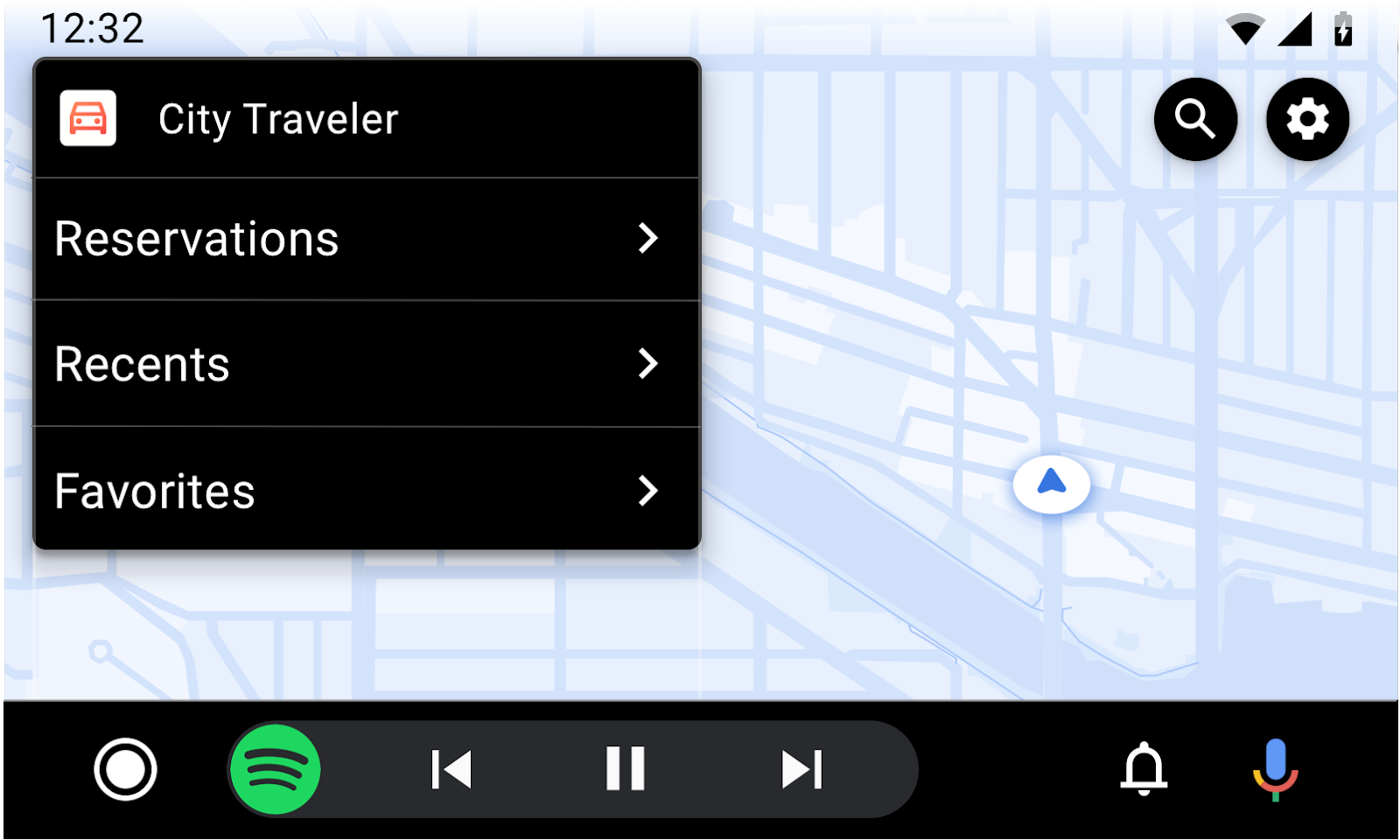
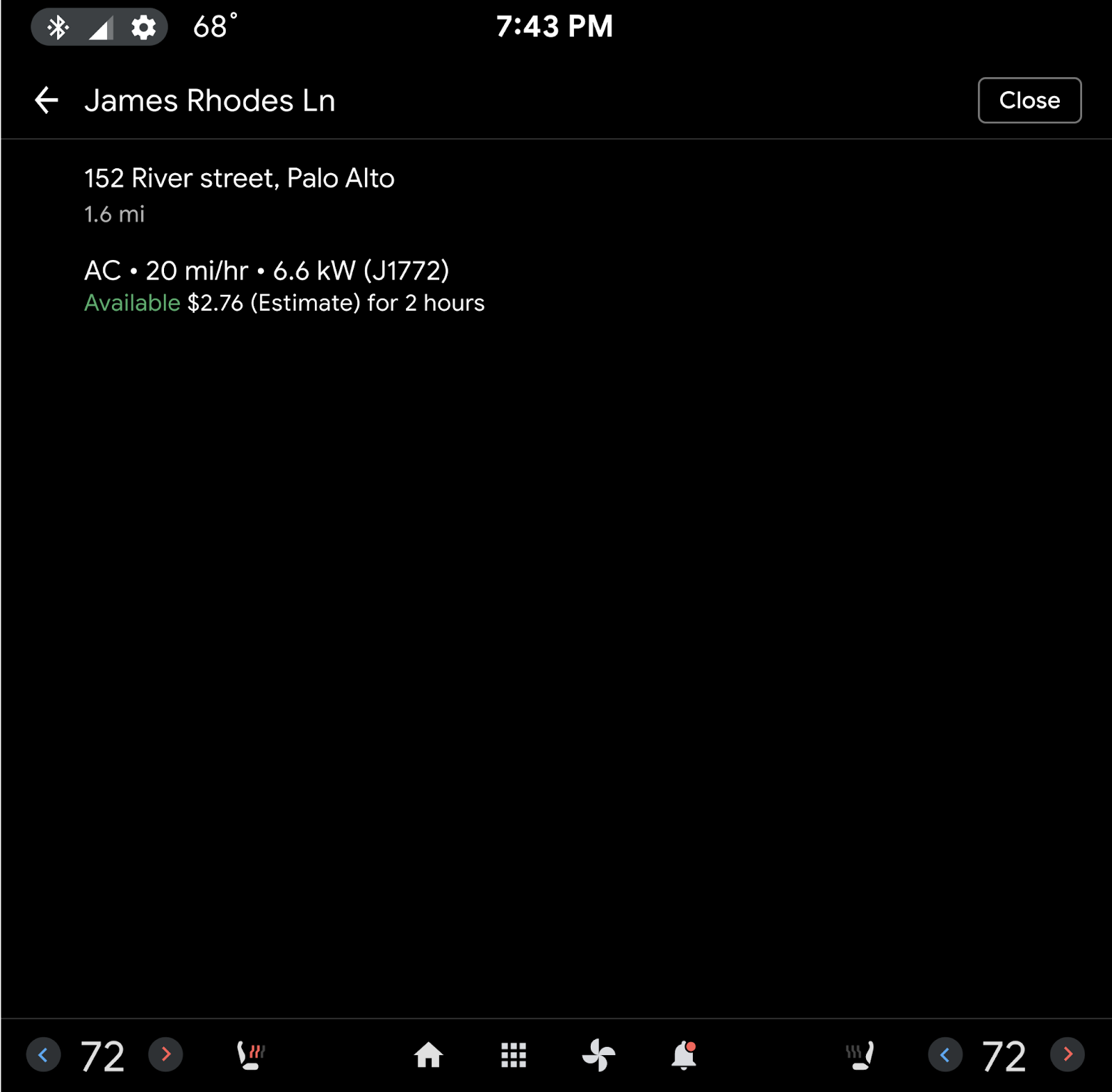
Android Auto example
AAOS example
Template support
All templates support the action strip. Sometimes the action strip can reside in the header.
Guidance
Use action strips for secondary or tertiary actions, rather than primary actions – except on the Navigation template. For details about when the action strip is displayed on the Navigation template and when it’s hidden, refer to Visibility of action strips.
Do not include both an action strip and a floating action button at the same time.
Action strip on template with maps
On templates with maps, the action strip can include up to 4 buttons, as shown in these examples.
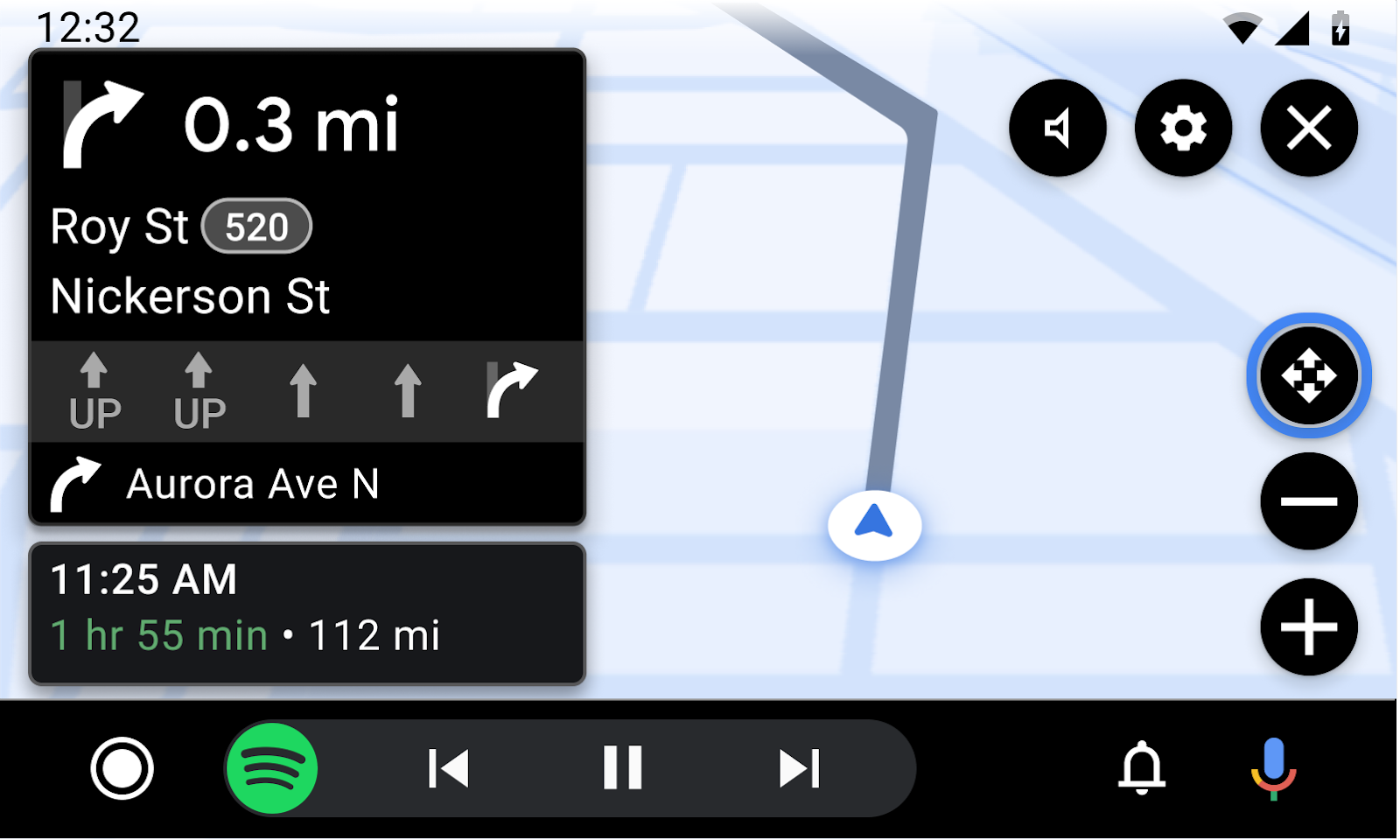
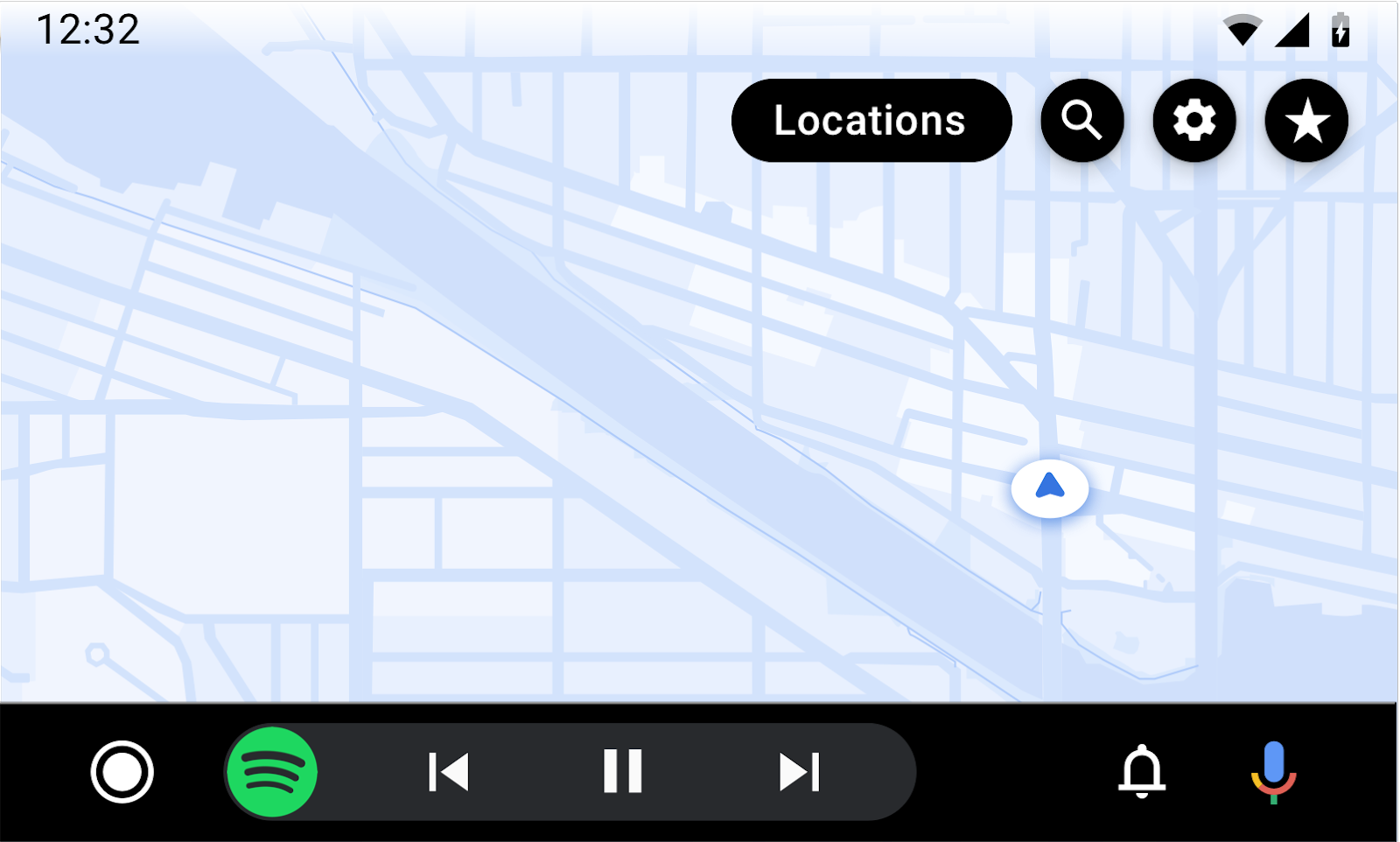
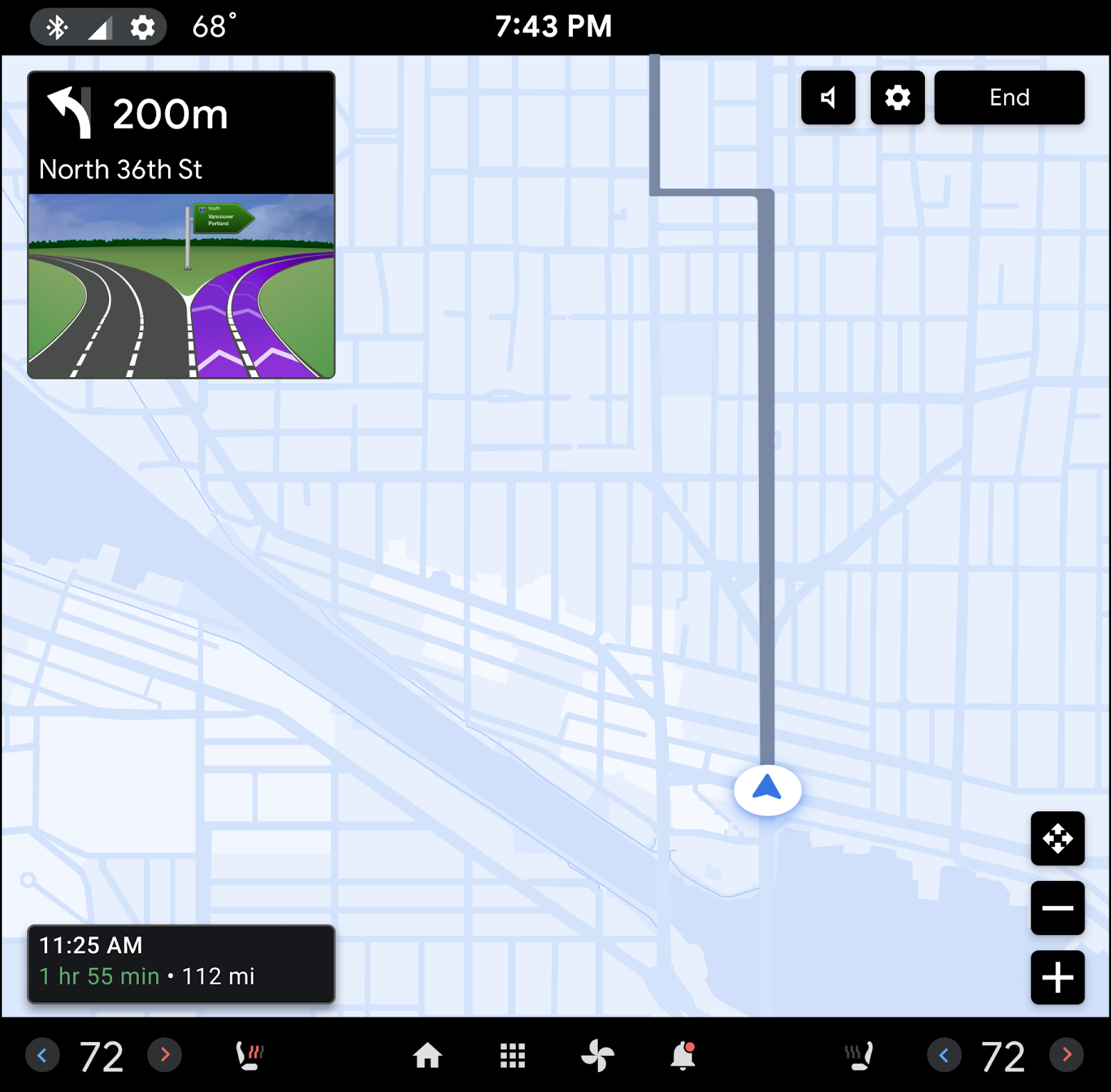
Pan mode
In pan mode, only the full-screen map and map action strip buttons are visible. Pan mode is used for rotary and touchpad inputs.
For the pan button, apps can provide 2 icons: one for entering pan mode, and one for exiting. The icon for exiting pan mode should clearly indicate that it provides a way to exit. For example, this button can show an **X**.
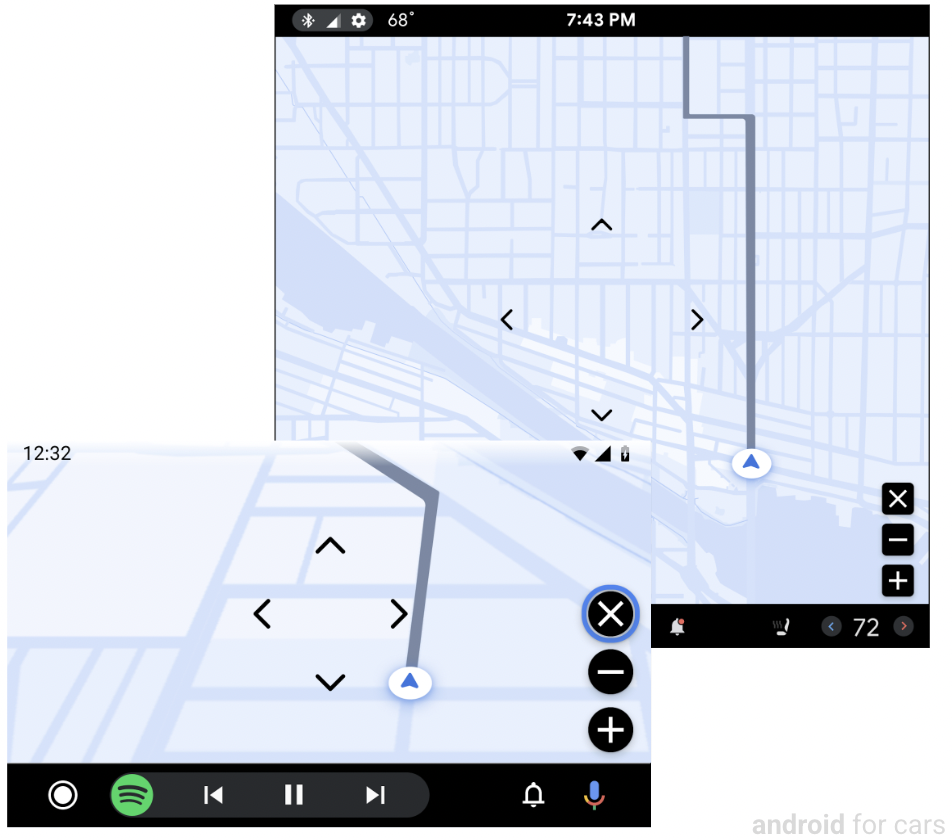
Visibility of action strips
The app library generally takes care of showing and hiding the action strip and map action strip in the map-based templates based on user interactions, as shown below.
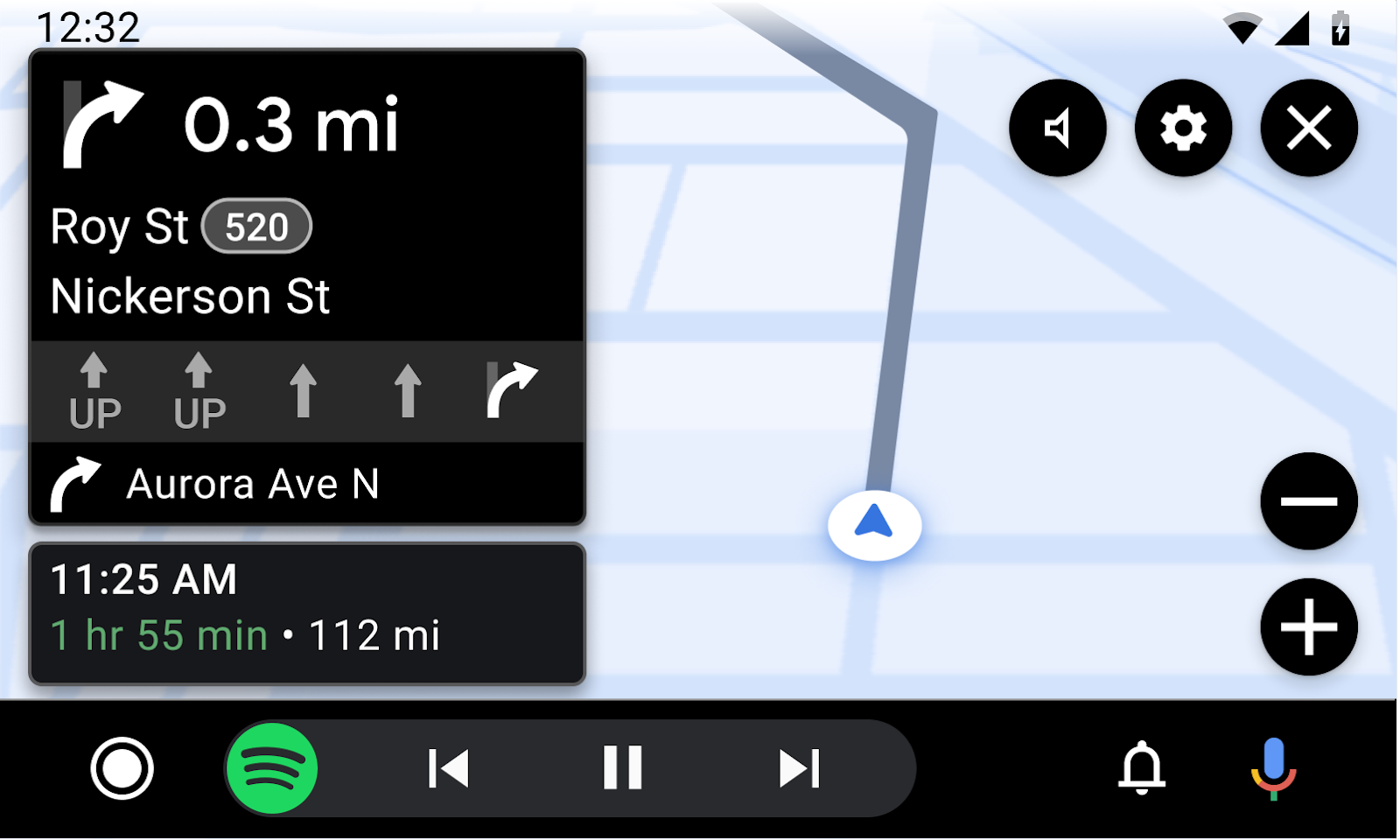
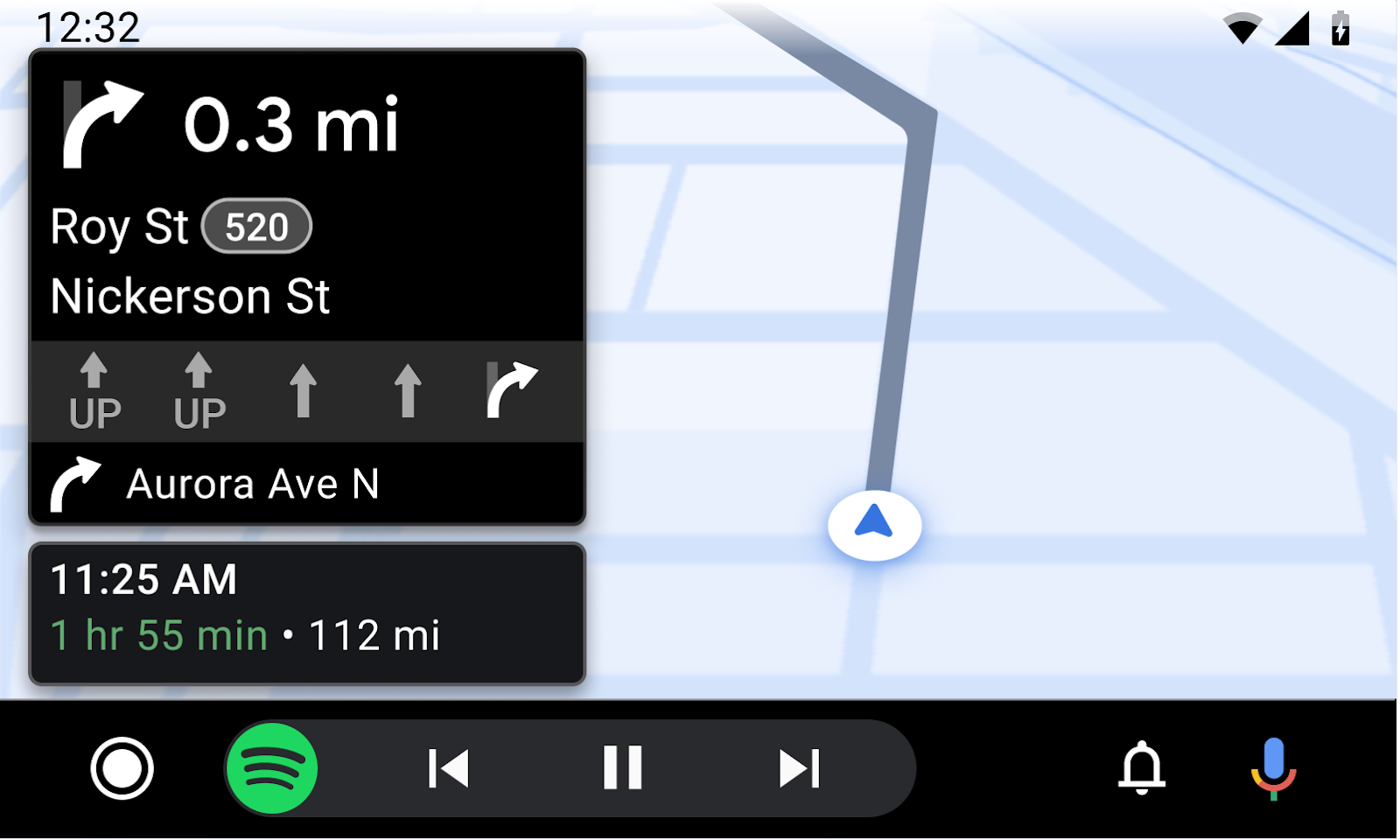
Exceptions
- Apps can flag actions in either action strip as persistent to keep them from disappearing.
- The app library may hide the action strip on small screens after 10 seconds even when there is rotary focus, to minimize clutter.